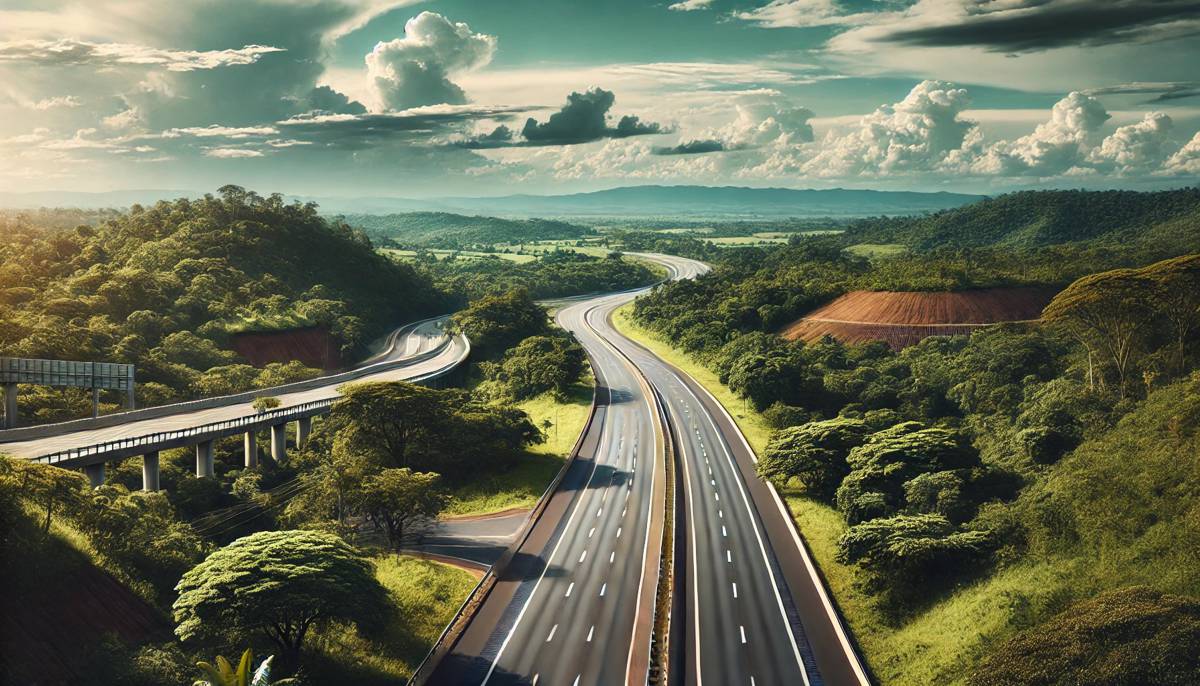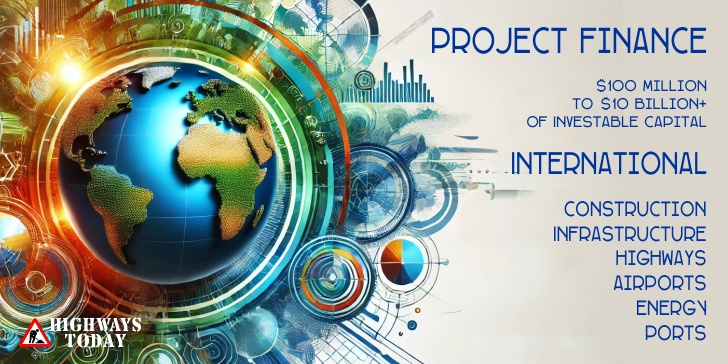Revitalising Bahia with the World Bank’s Push for Sustainable Roads in Brazil
In a major move that marks a significant leap forward for Brazil’s infrastructure, the World Bank has greenlit a substantial project to transform road management and maintenance across Bahia, benefitting millions.
This is just the beginning of a broader $1.662 billion project finance programme that will not only improve the region’s transportation systems but also bring an essential focus on environmental sustainability, road safety, and economic resilience to the country’s infrastructure agenda.
The initial $150 million loan targets the development of performance-based contracts to revamp Bahia’s roadways. This approach prioritises sustainable maintenance and proactive rehabilitation, with a core focus on key issues such as road safety, climate resilience, and traffic management. Among other goals, the project seeks to reduce transportation costs, cut down carbon emissions, and ultimately pave the way for safer and more reliable travel across the state.
Tackling Brazil’s Infrastructure Challenges with a Proactive Approach
Brazil’s road network has long faced a dilemma: inadequate proactive maintenance, coupled with sporadic investments, has led to deteriorating infrastructure quality and soaring costs. The country relies heavily on its roadways, with two-thirds of inland freight travelling via highways and roads. Yet, inefficient asset management and inconsistent funding have left Brazil’s road conditions lagging, impacting overall competitiveness on the global stage.
In response, the World Bank’s latest initiative embraces a proactive infrastructure strategy aimed at lasting resilience and reduced environmental impact. With a forward-thinking approach, the project sets out to shift from reactive fixes to performance-based maintenance, ensuring roads remain in prime condition over the long term.
Performance-Based Contracts
The cornerstone of Bahia’s infrastructure overhaul is the introduction of performance-based contracts, a model that has proven effective worldwide. These contracts place the onus on contractors to uphold set standards for both maintenance and rehabilitation, linking payment structures directly to the quality and longevity of their work. By focusing on consistent performance rather than occasional repairs, Bahia’s roads are expected to see substantial improvements in durability and safety.
Key highlights of the project’s performance-based model include:
- Enhanced Road Safety: With nearly 2.35 million people set to benefit from safer, well-maintained roads, the initiative is expected to lower accident rates, reduce fatalities, and create safer travel experiences across Bahia’s road network.
- Environmental Sustainability: Emphasising climate resilience, the project incorporates measures to lessen the impact of extreme weather, ultimately reducing the frequency of repairs and saving costs in the long term.
- Improved Rural Connectivity: The plan includes a focus on rural access, enhancing connectivity to remote regions and reducing isolation in less urbanised areas.
Building Climate-Resilient Roads for Long-Term Stability
One of the World Bank’s top priorities in Bahia’s road initiative is climate resilience. Brazil is no stranger to extreme weather, and its road infrastructure bears the brunt of climate challenges. By implementing weather-resistant construction techniques and materials, the project aims to protect the roads from degradation due to floods, heat, and other climate-related factors. The hope is to not only ensure road stability but to also contribute to Brazil’s broader climate goals under the World Bank Group’s Green, Resilient, and Inclusive Development (GRID) agenda.
Johannes Zutt, World Bank’s Country Director for Brazil, commented: “The World Bank is proud to support Brazil’s ambitious initiative to transform its road infrastructure. By focusing on proactive, safe, and resilient road asset management, we are not only enhancing transportation access and safety but also improving competitiveness and fostering long-term climate resilience.”
The PRO RODOVIAS Programme
The PRO RODOVIAS programme represents the latest chapter in the state of Bahia’s collaboration with the World Bank. It’s a continuation of earlier infrastructure projects, such as PREMAR 1 and PREMAR 2, which were executed successfully from 2007 to 2022. These programmes laid a solid foundation for Bahia’s infrastructure and highlighted the state’s commitment to sustainable road management, setting an example for the rest of Brazil.
As Bahia’s Governor Jerônimo Rodrigues, noted: “We continue to work diligently, as we have been doing for nearly 20 years in our state, to improve the quality and safety of the roads in Bahia. This is about driving development and enhancing the living conditions of people in Bahia throughout our territory, from urban centres to the rural areas of each municipality. PRO RODOVIAS is an evolution of two previous road infrastructure programmes executed in Bahia.”
The success of PREMAR projects not only showcased Bahia’s technical expertise but also positioned the state as a pioneer in innovative road management, creating a model that the rest of Brazil may soon follow.
Aligning with Brazil’s Broader Infrastructure Goals
The $1.662 billion programme does more than just address Bahia’s road needs; it aligns with Brazil’s overarching infrastructure and development ambitions. By adopting a forward-looking strategy and integrating private sector insights, the project aims to close Brazil’s infrastructure gap, which has long held back its economic growth. This initiative also supports Brazil’s journey towards achieving its Sustainable Development Goals (SDGs), ensuring that the country’s transport infrastructure can handle future demands.
Some of the broader impacts expected from the initiative include:
- Reduced Greenhouse Gas Emissions: By lowering emissions from heavy vehicles through improved road conditions, the project supports Brazil’s environmental commitments.
- Economic Competitiveness: Improved transport infrastructure can lower operational costs for businesses, boosting Brazil’s competitiveness in the global market.
- Job Creation: Infrastructure projects bring in employment opportunities for locals, contributing to the economy and supporting communities in Bahia.
Potential Economic Benefits for the People of Bahia
The immediate economic benefits from improved road infrastructure can be substantial. By lowering transportation costs, the project can support local businesses, creating a ripple effect that will likely benefit the region’s economy at large. Efficient roads reduce travel time, fuel consumption, and vehicle maintenance costs, all of which help ease the financial burden on both personal and commercial users.
Moreover, as Bahia focuses on rural roads and bypasses for essential transport corridors, the benefits extend to farmers and producers who rely on efficient transport for market access. A reliable road network not only strengthens local economies but also enhances food security by streamlining the transport of essential goods.
A Vision for Sustainable Infrastructure in Brazil
The World Bank’s endorsement of this major infrastructure initiative signals a pivotal shift towards sustainable and inclusive growth in Bahia and across Brazil. With a holistic approach that considers everything from climate resilience to economic efficiency, this project is more than a mere road management effort; it’s a roadmap to the future of Brazil’s infrastructure.
As the programme progresses, it could serve as a model for similar initiatives in other states and perhaps across Latin America, showcasing how performance-based management and proactive infrastructure planning can redefine road safety, environmental protection, and economic resilience.
Driving Brazil Forward
With Bahia leading the charge, the hope is that this programme will inspire a nationwide commitment to infrastructure that is as safe as it is sustainable. The journey may be long, but with the World Bank’s backing and Bahia’s proven track record, Brazil’s roadways are poised to become more resilient, competitive, and accessible, driving growth for years to come.






























